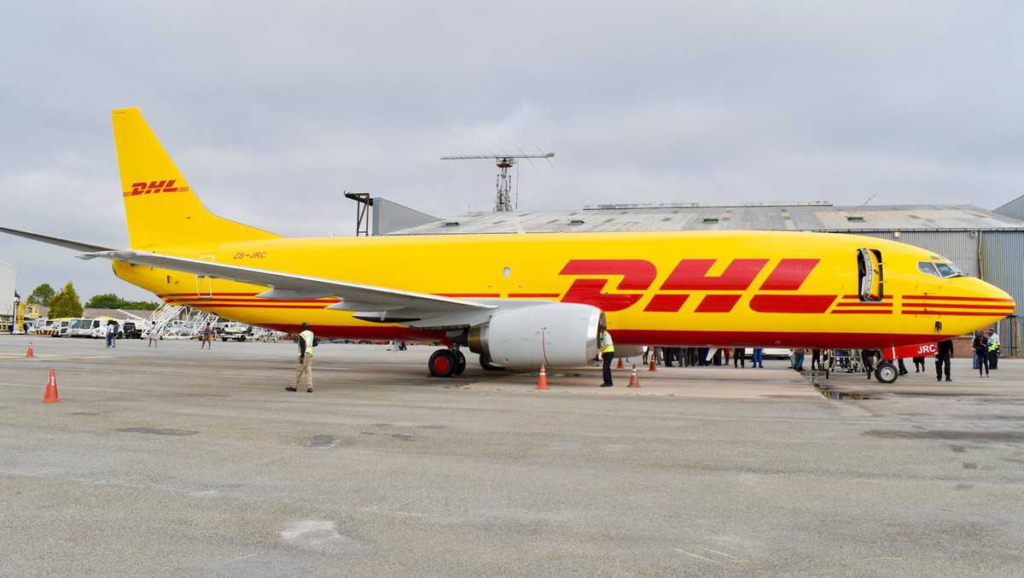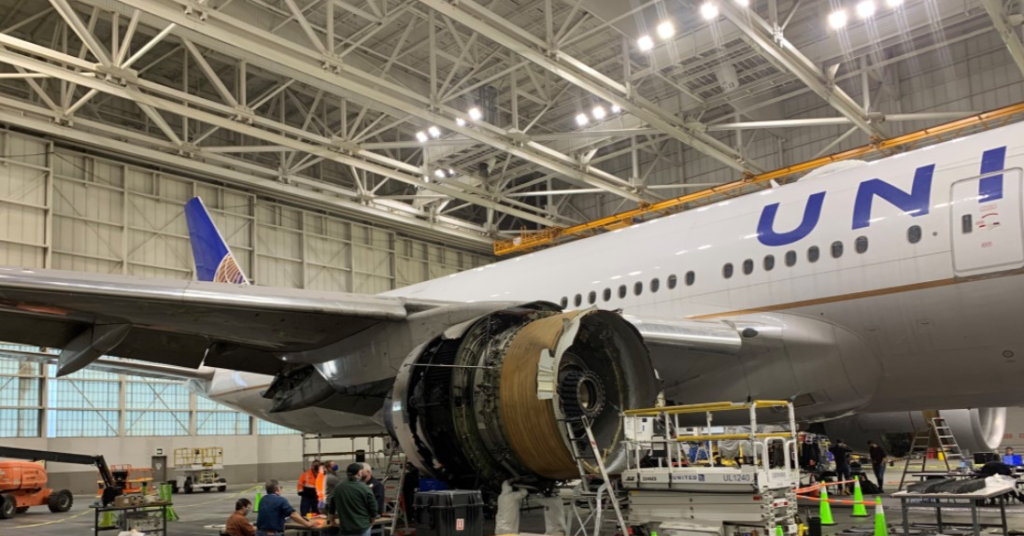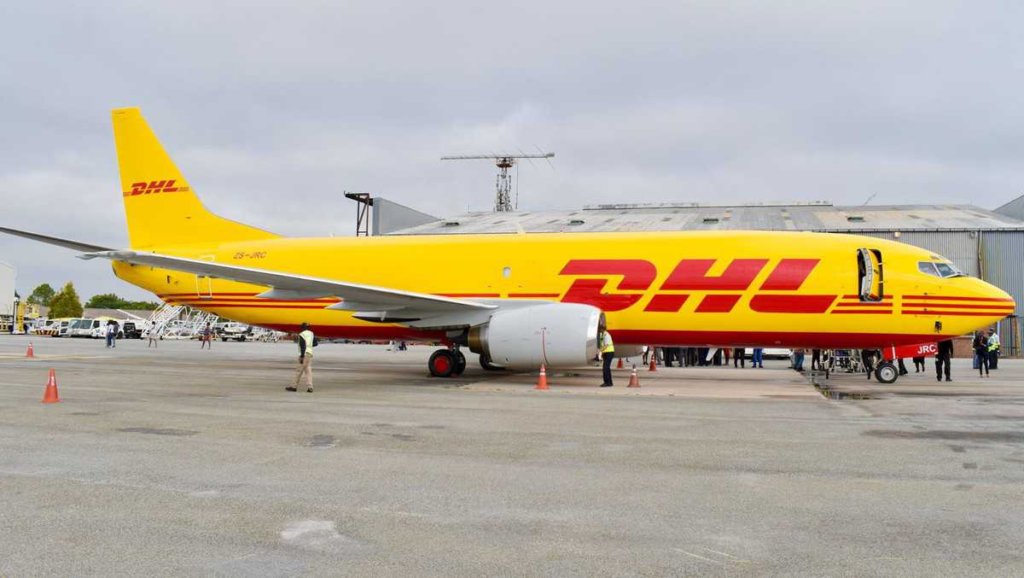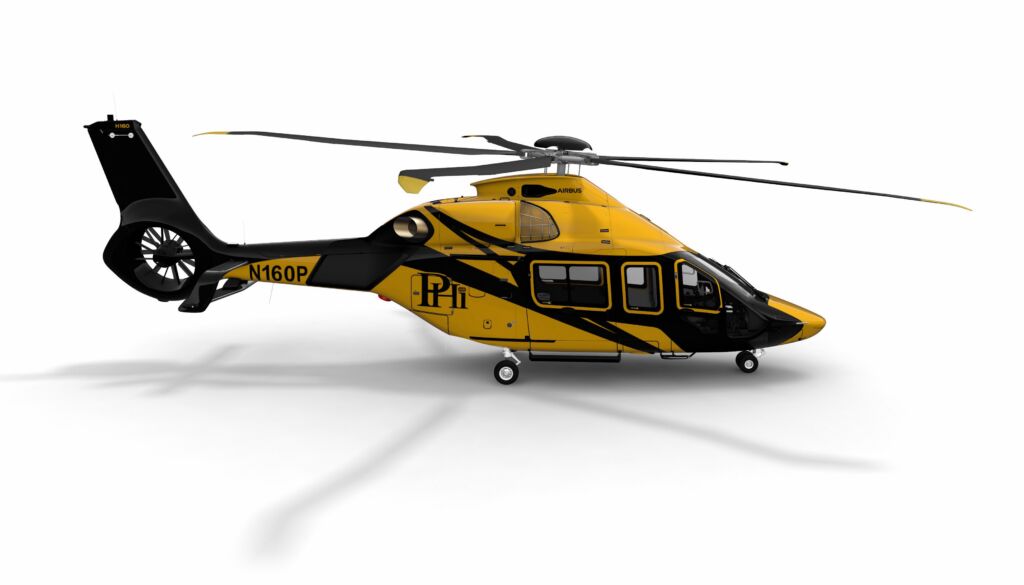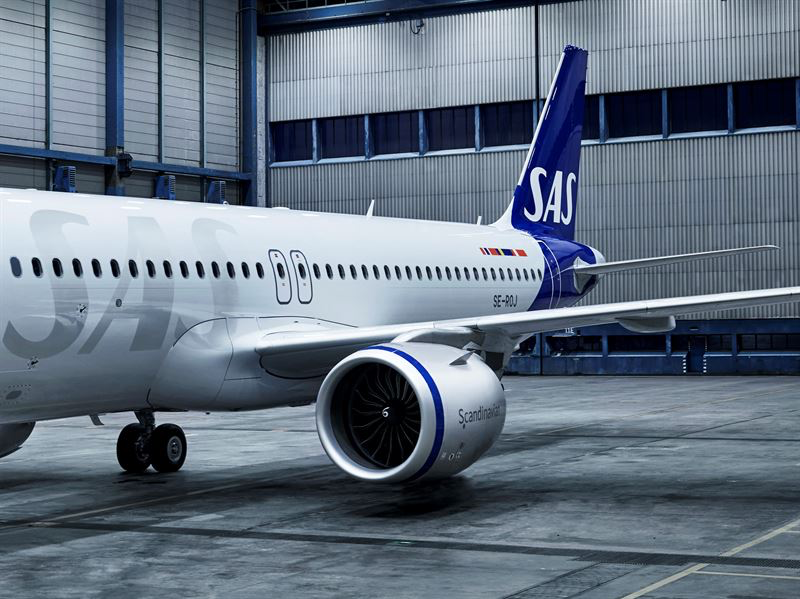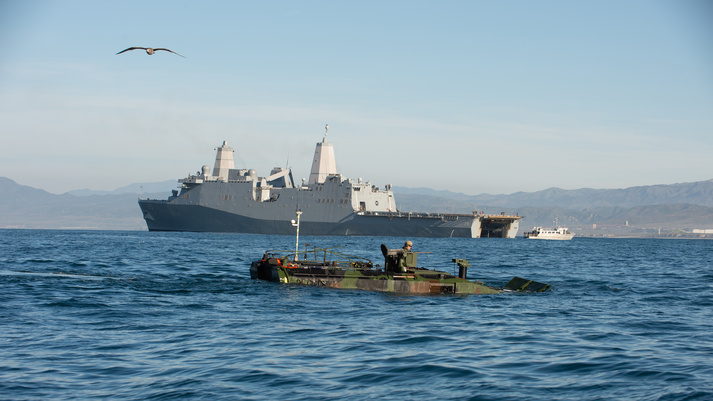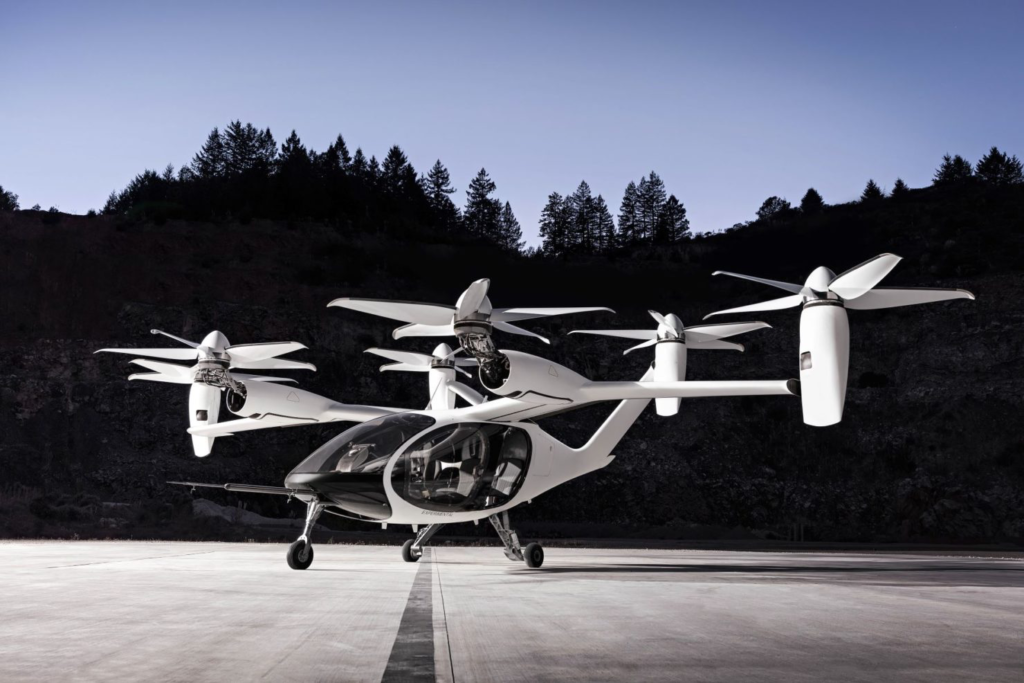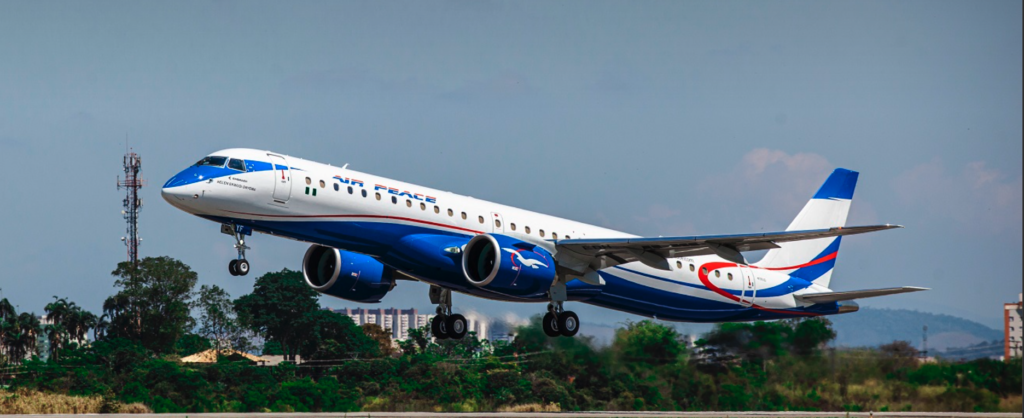Tag: operations (Page 8 of 20)
PHOENIX, February, 2021 (GLOBE NEWSWIRE) — Mesa Air Group, Inc. (NASDAQ: MESA) today announced it signed a letter of intent to lease an additional Boeing 737-400F cargo aircraft currently planned to be available in May 2021. The company currently operates two 737-400F aircraft for DHL.
“This 737-400F will be a great addition to the cargo fleet. The investment in a third 737 aircraft demonstrates our focus on cargo operations and our commitment to DHL,” said Brad Rich, Chief Operating Officer. “This aircraft will provide Mesa pilots with additional career advancement opportunities and provide flexibility to better meet the demands of the current cargo environment.”
Boeing released the following statement in regards to United Airlines Flight 328 which suffered an engine failure upon takeoff from Denver International Airport:
“Boeing is actively monitoring recent events related to United Airlines Flight 328. While the NTSB investigation is ongoing, we recommended suspending operations of the 69 in-service and 59 in-storage 777’s powered by Pratt & Whitney 4000-112 engines until the FAA identifies the appropriate inspection protocol.
Boeing supports the decision yesterday by the Japan Civil Aviation Bureau, and the FAA’s action today to suspend operations of 777 aircraft powered by Pratt & Whitney 4000-112 engines. We are working with these regulators as they take actions while these planes are on the ground and further inspections are conducted by Pratt & Whitney.
Watch the video news report below!
Marignane, France, 15, February, 2021 – International energy group Shell has selected leading US offshore helicopter operator PHI to operate four Airbus H160’s to service a support contract in the Gulf of Mexico. The contract marks the entry into the oil and gas market of the H160 with a wealth of design features promising new levels of safety, comfort and schedule reliability in offshore operations.
The three companies – Airbus, PHI and Shell – are cooperating in a unique partnership. In a pioneering move, Airbus will provide one H160 ahead of final deliveries to PHI and Shell for a year-long route-proving programme to enable the operator and the final customer to familiarize themselves with the type’s advanced features and mitigate the normal challenges around entry into service.
At PHI it will be based at Houma, Louisiana and join a large company fleet of H125’s and H135’s deployed in emergency medical service throughout the United States, as well as two H145’s operating for Shell on pipeline survey work in Louisiana, and two H145’s flying the world’s longest harbour pilot shuttle in Mackay, Australia.
With 68 patents, the H160 is the world’s most technologically advanced helicopter and features an unprecedented suite of pilot aids delivered through its Helionix avionics which substantially reduces crew workload and decreases the risk of pilot error.
They include the world’s first ground helipad assisted take-off procedure, a vortex ring state pre-alerting system and a recovery mode to automatically regain steady flight in difficult circumstances.
The H160 is powered by two of the latest Arrano engines from Safran Helicopter Engines and incorporates an embedded monitoring system and a redundancy of sensors, and can be maintained autonomously far from base. The design emphasises robust corrosion defence specifically envisaging offshore missions.
SAS has selected CFM International LEAP-1A engines to power its new fleet of 35 A320neo family aircraft ordered in 2018. This agreement also includes eight spare engines. In addition, SAS has signed with CFM a Rate-Per-Flight-Hour (RPFH) support agreement to cover its new fleet of LEAP-1A engines, including spares, as well as 15 additional LEAP-1A-powered A320neo on lease.
This new agreement is part of SAS’ fleet upgrade program that aims to improve efficiency and sustainability performances. SAS has been at the forefront of introducing technologies that reduce the impact of aviation on the environment, as well as choosing efficient engines to power its fleet.
SAS was a launch customer for CFM’s advanced LEAP-1A engine that it selected in 2011 to power the first batch of 30 A320neo. SAS currently operates 44 A320neo aircraft and 1 A321neo LR powered by the fuel-efficient LEAP engine and plans to introduce two additional A321neo LR.In total SAS orders for purchased and leased aircraft placed in 2011 and 2018 will enable SAS to increase the fleet of A320neo to 80.
CFM International’s advanced LEAP-1A engine continues to set a new industry standard for fuel efficiency and asset utilization, logging more than seven million engine flight hours in commercial operations. The fleet is demonstrating a 15 percent better fuel consumption and CO2 reductions as well as a significant improvement in noise emissions compared to the best CFM56 engines.
BAE Systems (OTC: BAESY) has received a $184 million contract option from the U.S. Marine Corps for more Amphibious Combat Vehicles (ACV) under full-rate production. The order demonstrates the Marine Corps’ confidence in a program that is on track to deliver this critical capability to the Marines. This contract award will cover production, fielding, and support costs for the ACV personnel carrier (ACV-P) variant. BAE Systems was awarded the first full-rate production contract option in December for the first 36 vehicles. This option on that contract increases the total number of vehicles under full-rate production to 72, for a total value of $366 million.
The ACV is a highly mobile, survivable, and adaptable platform for conducting rapid ship-to-shore operations and brings enhanced combat power to the battlefield. BAE Systems is under contract to deliver two variants to the Marine Corps under the ACV Family of Vehicles program: the ACV-P and the ACV command variant (ACV-C). A 30mm cannon (ACV-30) is currently under contract for design and development and a recovery variant (ACV-R) is also planned.
The Marine Corps selected BAE Systems along with teammate Iveco Defence Vehicles for the ACV program in 2018 to replace its legacy fleet of Assault Amphibious Vehicles (AAV), also built by BAE Systems. BAE Systems was also recently awarded an indefinite delivery indefinite quantity (IDIQ) contract worth up to $77 million for the ACV program that includes the provision of spare and replacement parts, testing equipment, and other services.
ACV production and support is taking place at BAE Systems locations in Stafford, Virginia; San Jose, California; Sterling Heights, Michigan; Aiken, South Carolina; and York, Pennsylvania.
OLATHE, Kan./Feb. 10, 2020/Business Wire – Garmin® International, Inc., a unit of Garmin Ltd. (NASDAQ: GRMN), today announced a long-term agreement to provide the state-of-the-art
Garmin G3000® integrated flight deck to Joby Aviation for their revolutionary all-electric vertical takeoff and landing (eVTOL) aircraft, which is expected to commence commercial operations in 2024. Garmin has decades of experience deploying certified avionics solutions to new markets and this is continued with the touchscreen G3000 integrated flight deck for eVTOL aircraft in the Urban Air Mobility (UAM) market. The G3000 integrated flight deck has amassed extensive field service history, and with this derivation of the system into the eVTOL segment, it leverages that proven experience while offering advanced integration functionality in a compact design with unparalleled capabilities.
The modular Garmin G3000 integrated flight deck boasts light weight and vibrant high-resolution flight displays that support navigation, communication and flight sensor solutions and integrates seamlessly with Joby’s aircraft systems. Specifically tailored to meet the needs of eVTOL aircraft, the G3000 system that will be featured in Joby’s eVTOL aircraft delivers enhanced capabilities to optimize their air mobility service through tight integration with the vehicle mission computer and tailoring of flight guidance display indications. Further, the G3000 will be architected to provide the ability to efficiently facilitate future system upgrades as the Advanced Aerial Mobility (AAM) industry continues to evolve.
Joby Aviation is a California headquartered company developing an all-electric vertical takeoff and landing aircraft. After more than a decade of engineering and development, Joby intends to operate the aircraft as a fast, quiet and affordable air mobility service as early as 2024. The piloted, zero-emissions aircraft, will be capable of transporting four passengers up to 150 miles on a single charge, with a top cruising speed of 200 mph. It is designed to help reduce urban congestion and accelerate the shift to sustainable modes of transit. Designed for daily life, the aircraft lands vertically and provides flexibility and versatility to serve nearly any community.
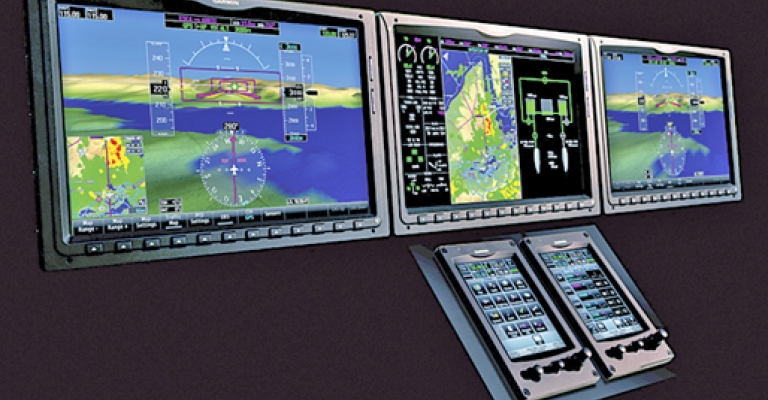
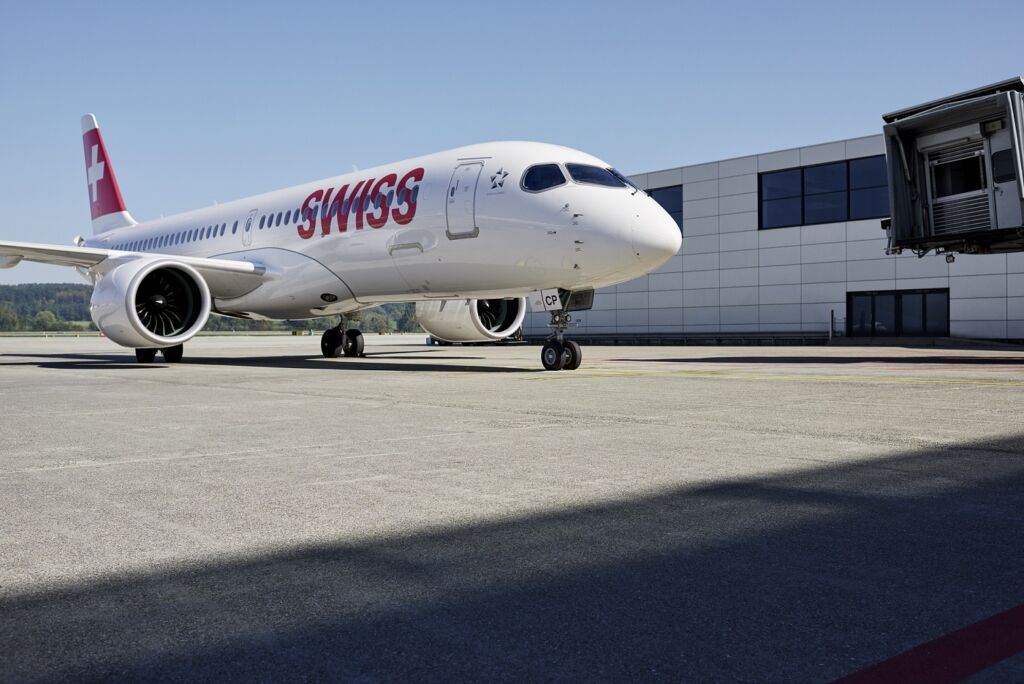
SWISS Reduces Geneva Flight Operations to Minimum Due to Travel Restrictions
In view of the tighter travel restrictions announced by the Swiss Federal Council on 27 January and the resulting decline in demand for air travel, SWISS has been compelled to temporarily reduce its flight operations to an absolute minimum at Geneva Airport until the end of February. SWISS remains fully committed to its Geneva business and operations in the longer term, and will continue to strive to keep Western Switzerland as well connected as possible with its global Zurich-based network. Further changes are also being made to SWISS’s Zurich flight schedules. Travellers affected by flight cancellations can rebook free of charge or have the price of their ticket refunded.
Swiss International Air Lines (SWISS) is temporarily reducing its already-downsized flight operations in Geneva to an absolute minimum until the end of February with effect from today (Monday 1 February), in view of the tighter travel restrictions announced by the Swiss government. The action is being taken because SWISS’s Geneva services are point-to-point operations that do not generate additional business through a feeder function (as is the case at SWISS’s Zurich hub). Geneva Airport also currently lacks traveller testing facilities. The 13 weekly services between Geneva and SWISS’s Zurich hub will continue to operate, as will the seven weekly frequencies between Geneva and the Frankfurt hub of Lufthansa. So SWISS will continue to keep Western Switzerland connected with its global route network in these still difficult times.
SWISS remains fully committed to its long-term strategy of maintaining a strong presence in Geneva and further expanding its present range of point-to-point air services. “Geneva is and remains an extremely important location for us,” confirms SWISS CEO Dieter Vranckx. “And as soon as conditions permit and the demand for air travel returns, we will steadily expand our services from Geneva again, as we will from Zurich, too.”
Zurich schedules also affected
Many of the short- and long-haul SWISS services that are currently being offered from and to Zurich can continue to be operated, in view of their feeder function and/or their cargo-carrying role. But the already substantially diminished range of flights here, too, is being further reduced with effect from 1 February. As a result, SWISS will only be operating some 10 per cent of the February services which it provided in 2019.
Travellers whose flight is cancelled as a result of these developments can rebook free of charge or have the price of their ticket refunded.
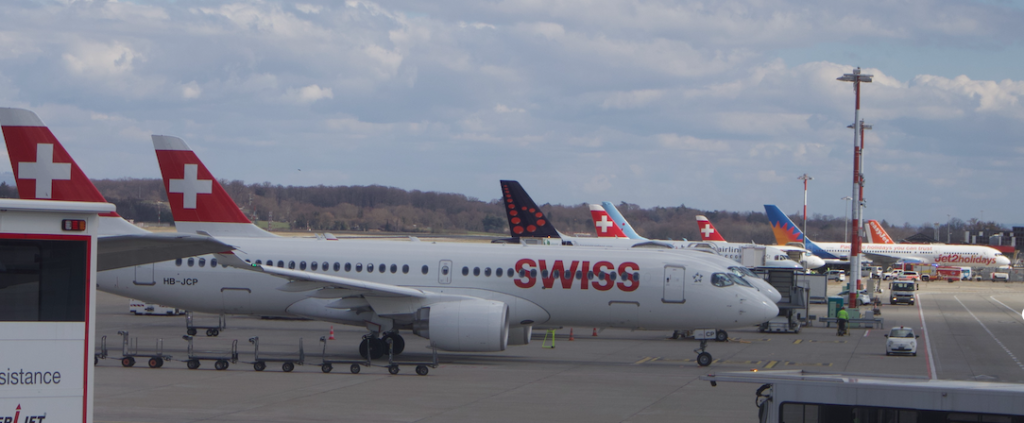
Air Peace, Nigeria and West Africa’s largest airline, took delivery of their first E195-E2 aircraft today. The aircraft is now due to fly from Embraer’s facility in São José dos Campos to join the Air Peace fleet in Nigeria.
Air Peace, Nigeria and West Africa’s largest airline, took delivery of their first E195-E2 aircraft today. The aircraft is now due to fly from Embraer’s facility in São José dos Campos to join the Air Peace fleet in Nigeria.
The jet delivered today is the first of 13 firm E195-E2 orders, with 17 remaining purchase rights, as announced in March 2019, and updated with three further firm orders from purchase rights announced at the Dubai Air Show in November 2019. The total value of the deal, with all purchase rights exercised is US $2.2 billion. The aircraft are configured in a comfortable dual class arrangement with 124 seats.
Air Peace already operates eight ERJ-145s, and will use the E195-E2s to enhance domestic and regional connectivity. The E2 is able to achieve this both affordably for passengers and profitably for the airline, along with delivering a superior travel experience. This enhanced network will also help feed and sustain long haul operations at the Lagos Hub, such as the UAE route launched in 2019 and South Africa launched in December 2020.
There are currently 206 Embraer aircraft operating in Africa with 56 airlines in 29 countries.

